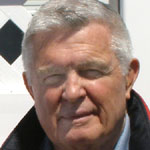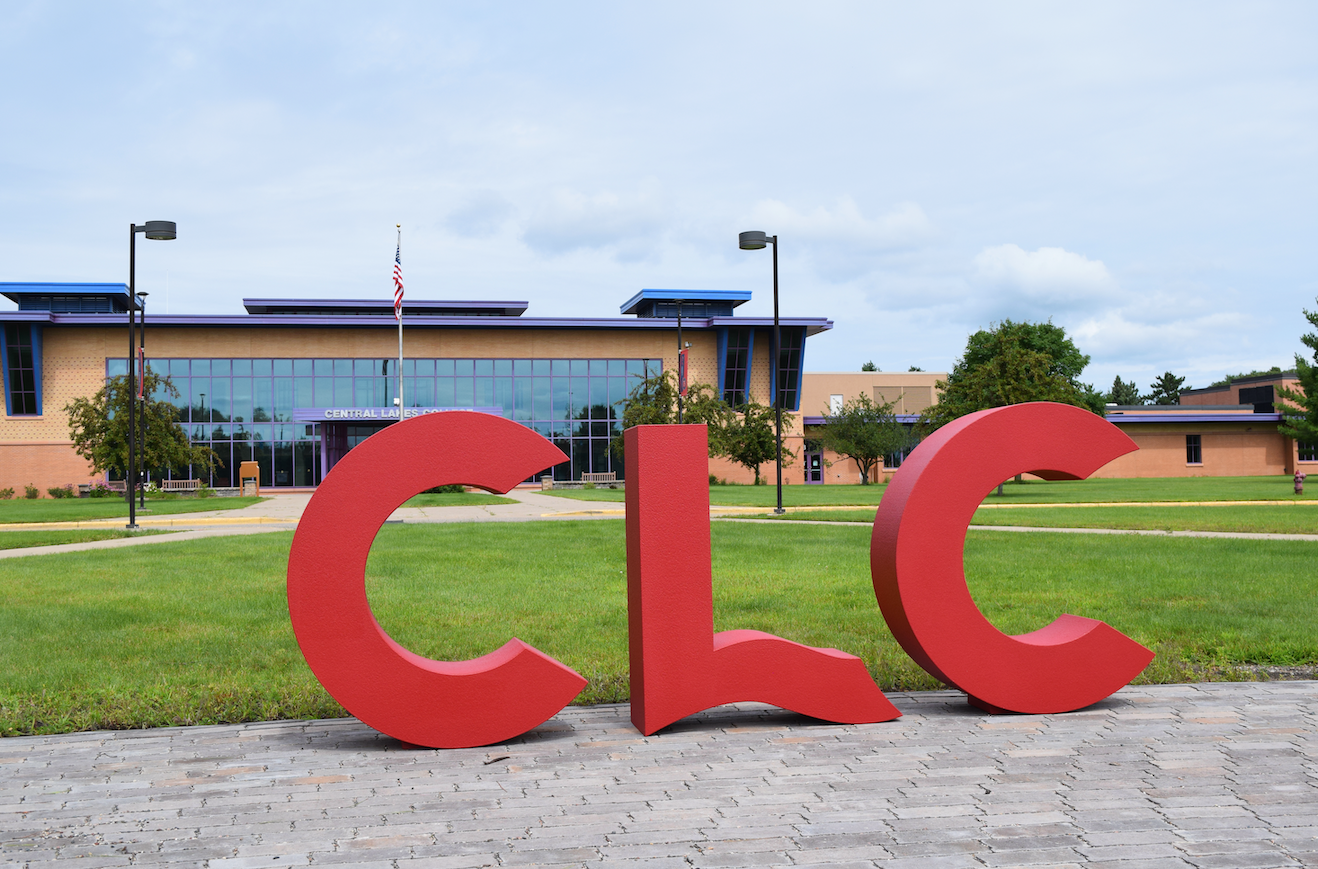 Former Central Lakes College (Brainerd Community College) coach Al Holmes will receive a Lifetime
Former Central Lakes College (Brainerd Community College) coach Al Holmes will receive a LifetimeService Award from the National Wrestling Hall of Fame and Museum at its
Minnesota Chapter Banquet May 5 in Austin. He was a wrestling and football coach for 36 years at Minnesota State
University Moorhead, Mayville State College, N.D., Michigan Tech University and
Brainerd Community College. Al was CLC’s head football coach from 1986-1993 and posted a 40-28
record. The Raiders were state runners-up in 1991 and advanced to the R.C. Cola
Bowl in Cedar Falls, Iowa, in 1988, losing to Iowa Central 28-7. He was an
assistant coach at CLC from 1994 to 1997. He began his coaching career at Frazee in 1959 and
also coached at Fergus Falls. He was a member of Moorhead High School’s and Moorhead State’s first
wrestling teams. Holmes is a member of the MSUM, BCC and Minnesota Community
College Conference halls of fame. Holmes will have his name placed in the John T. Vaughan
Hall of Honors at the National Wrestling Hall of Fame Museum in Stillwater,
Okla. Tickets may be obtained from Spencer Yohe, chapter president, at syohe@acegroup.cc or (507) 495-3213, or use
credit card at http://mn-nwhof.ticketleap.com. Social
hour is from 4-5 p.m. Dinner and program follow at 5 p.m.
Al Holmes interview
By Tony Sailer, Brainerd Daily Dispatch, Sept. 4, 1999
By Tony Sailer, Brainerd Daily Dispatch, Sept. 4, 1999
Football and respect
“It sounds corny, but I firmly believe there is no greater place to be than
the football practice field,” he said. “Everybody looks for acceptance and
self-respect.
“Your name, money, religion, nationality, whatever, you leave it all in the
locker room. You are accepted or rejected on what you do or don’t do.
“The most important thing an individual can learn is self-respect.
Self-esteem is the most important thing you can have. They can steal a game from
you but they can’t steal your self-esteem unless you cooperate with them.”
Athletics as a classroom
“Some people look at athletics as a frill,” said Holmes. “The practice field
is a laboratory. It’s one of the most important classes there is.
“Most people get fired because they can’t get along (with co-workers). What
you learn in practice is that you are not the most important thing, the
organization is. Sometimes you have to conform to make the unit successful. You
have to cooperate with some people you don’t even like.
“You can’t teach that in a classroom.”
Competitive instinct
“It still hurts to lose but when you sit down and reflect on it it’s a little
easier to handle,” said Holmes. “When I started coaching … I wanted to win.
But you learn after many years the wins and the losses are all just a blur.
Nobody is really concerned about that. It’s the people you had a chance to work
with.
“We started an informal reunion (at Moorhead State) … We get together and
tell a lot of lies. In three years only one time did anyone ever mention
anything about his exploits and he found out no one was even listening or cared.
We get together because of a bond of comradeship. It’s a common effort. You
learn to respect each other if the effort has been a good one.”
Have athletes changed?
“I don’t think human nature has changed much,” said Holmes. “When I first got
into coaching I went in with a whip and a chair and was going to shape people
with intimidation. Discipline is important but you can’t lose sight of the human
factor. If (people) feel good about themselves they will perform better than if
you browbeat them.
“Specialization, without question, will result in a better athlete in a
certain sport but it may cost them many lessons. You get isolated; insulated
from the real world. Not like a three-sport athlete … As the seasons change
you change your surroundings, your coaches and you are with different
athletes.
“What I used to consider a workout to today’s kids is a warmup,” continued
Holmes. “Kids today are willing to work harder and put in longer hours. But I
don’t think they are as patient. They want instant success. They are not willing
to battle adversity as long. They are not willing to fight for a year or two for
a chance to play. There are too many other things they can do if they are not
getting instant success.”
Pass or fail
“In the athletic world, in the minds of the public, you either pass or fail
and it’s not a fair test,” said Holmes. “Many times you are not even on an even
playing field. Look at it the other way. (What if) in the classroom you either
get an A or an F and the odds are 50-50. That’s pretty harsh judgment.
“You get individuals who point to athletes who have messed up. I could point
to an individual who has had 12 years of school and had English every year and
has a hard time reading. I’m not going to condemn English because of one
individual. I don’t care what the program, you will have failures and
successes.”
Responsibility
“You have the three Rs — reading, ‘riting and ‘rithmetic. But the most
important R is responsibility,” said Holmes.
“A person has to accept responsibility for their actions. If they feel
responsibility they are much more likely to consider consequences before they do
something.
“If the results are negative and they get out of it by blaming someone else,
then they won’t stop and think of what kind of hot water they can get into.
“I have appeared in court with some players,” continued Holmes. “But it’s not
to minimize what they did or to seek to reduce their punishment. You don’t
abandon friends; it’s strictly support, not an excuse for what they did. You
still expect them to take full responsibility.
“Like they say, if you’re going to dance all night you better expect to pay
the fiddler.”
Coaching
“As long as they keep paying me Social Security and I don’t have to go back
to work, I’ll coach,” said Holmes, who is the defensive line coach for the
Raiders.
“Now I’m able to listen to (Scearcy) and that’s a pleasure in itself. Lowell
is known for baseball but it’s a little-known fact he’s one of the sharpest
football coaches I’ve ever been around. He’s also a stand-up comedian and keeps
you loose on the practice field.”
Holmes said he is glad he is in the coaching fraternity.
“You go through things together. You go through adversity together. You hang
in there together.”
“It sounds corny, but I firmly believe there is no greater place to be than
the football practice field,” he said. “Everybody looks for acceptance and
self-respect.
“Your name, money, religion, nationality, whatever, you leave it all in the
locker room. You are accepted or rejected on what you do or don’t do.
“The most important thing an individual can learn is self-respect.
Self-esteem is the most important thing you can have. They can steal a game from
you but they can’t steal your self-esteem unless you cooperate with them.”
Athletics as a classroom
“Some people look at athletics as a frill,” said Holmes. “The practice field
is a laboratory. It’s one of the most important classes there is.
“Most people get fired because they can’t get along (with co-workers). What
you learn in practice is that you are not the most important thing, the
organization is. Sometimes you have to conform to make the unit successful. You
have to cooperate with some people you don’t even like.
“You can’t teach that in a classroom.”
Competitive instinct
“It still hurts to lose but when you sit down and reflect on it it’s a little
easier to handle,” said Holmes. “When I started coaching … I wanted to win.
But you learn after many years the wins and the losses are all just a blur.
Nobody is really concerned about that. It’s the people you had a chance to work
with.
“We started an informal reunion (at Moorhead State) … We get together and
tell a lot of lies. In three years only one time did anyone ever mention
anything about his exploits and he found out no one was even listening or cared.
We get together because of a bond of comradeship. It’s a common effort. You
learn to respect each other if the effort has been a good one.”
Have athletes changed?
“I don’t think human nature has changed much,” said Holmes. “When I first got
into coaching I went in with a whip and a chair and was going to shape people
with intimidation. Discipline is important but you can’t lose sight of the human
factor. If (people) feel good about themselves they will perform better than if
you browbeat them.
“Specialization, without question, will result in a better athlete in a
certain sport but it may cost them many lessons. You get isolated; insulated
from the real world. Not like a three-sport athlete … As the seasons change
you change your surroundings, your coaches and you are with different
athletes.
“What I used to consider a workout to today’s kids is a warmup,” continued
Holmes. “Kids today are willing to work harder and put in longer hours. But I
don’t think they are as patient. They want instant success. They are not willing
to battle adversity as long. They are not willing to fight for a year or two for
a chance to play. There are too many other things they can do if they are not
getting instant success.”
Pass or fail
“In the athletic world, in the minds of the public, you either pass or fail
and it’s not a fair test,” said Holmes. “Many times you are not even on an even
playing field. Look at it the other way. (What if) in the classroom you either
get an A or an F and the odds are 50-50. That’s pretty harsh judgment.
“You get individuals who point to athletes who have messed up. I could point
to an individual who has had 12 years of school and had English every year and
has a hard time reading. I’m not going to condemn English because of one
individual. I don’t care what the program, you will have failures and
successes.”
Responsibility
“You have the three Rs — reading, ‘riting and ‘rithmetic. But the most
important R is responsibility,” said Holmes.
“A person has to accept responsibility for their actions. If they feel
responsibility they are much more likely to consider consequences before they do
something.
“If the results are negative and they get out of it by blaming someone else,
then they won’t stop and think of what kind of hot water they can get into.
“I have appeared in court with some players,” continued Holmes. “But it’s not
to minimize what they did or to seek to reduce their punishment. You don’t
abandon friends; it’s strictly support, not an excuse for what they did. You
still expect them to take full responsibility.
“Like they say, if you’re going to dance all night you better expect to pay
the fiddler.”
Coaching
“As long as they keep paying me Social Security and I don’t have to go back
to work, I’ll coach,” said Holmes, who is the defensive line coach for the
Raiders.
“Now I’m able to listen to (Scearcy) and that’s a pleasure in itself. Lowell
is known for baseball but it’s a little-known fact he’s one of the sharpest
football coaches I’ve ever been around. He’s also a stand-up comedian and keeps
you loose on the practice field.”
Holmes said he is glad he is in the coaching fraternity.
“You go through things together. You go through adversity together. You hang
in there together.”
 CLC News The news and events from Central Lakes College
CLC News The news and events from Central Lakes College



